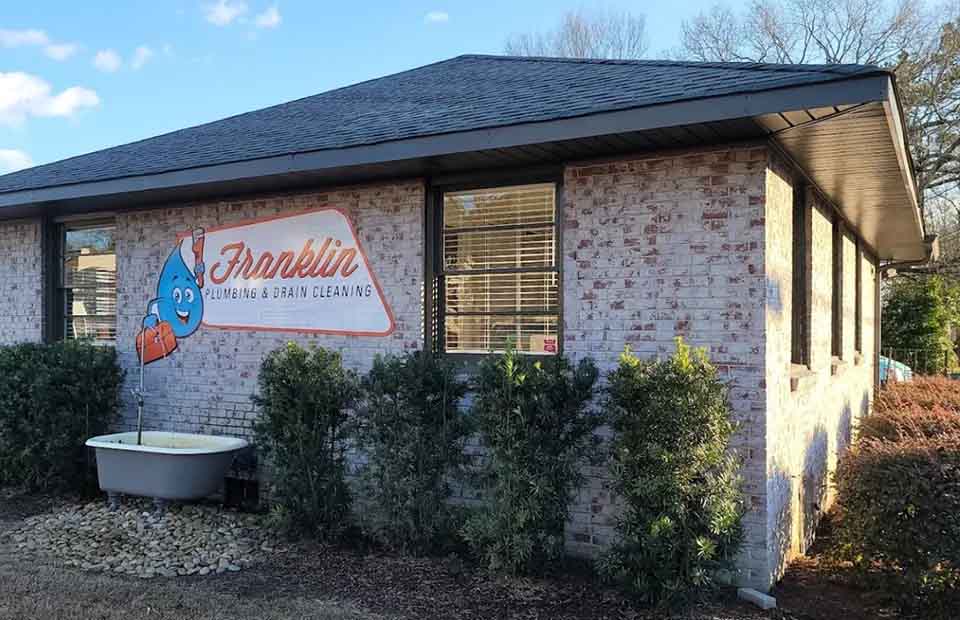All images by Stephanie Lee for RICE Media
Zhong He is soaked in sewage water from an unclogged kitchen sink. As lanky as he is, the 26-year-old can’t escape the flow of wastewater drenching all over him. He’s fully sandwiched between the floor and the bottom of a kitchen cabinet.
To unclog the kitchen sink, he reaches into a drain under the cabinet and uses his hand to pull out whatever’s clogging the pipe. Clearing the blockage releases the pressure. Hence, the fountain of wastewater.
Anyone else’s first reaction to the filth would be to move away from the flow. Zhong He, however, could not. He’s professionally obliged to edge his way closer to the source of the sewage.
It’s all part and parcel of his job as a plumber—an occupational hazard he has accepted since the start of his career.
“My whole body was drenched with wastewater. I was so dirty that my client allowed me to shower in their house and gave me clothes.”
“Except underwear,” he adds, chuckling.
Zhong He was lucky that time. On other occasions, he isn’t as fortunate with clients across Singapore. His job requires him to trudge on, no matter how stained his clothes are or how unpleasant he smells.
Clearing choked pipes, like the one underneath the kitchen cabinet, is a common problem in Singaporean homes. It also means that Zhong He regularly finds himself in similar situations—arm-deep in pipes and dripping with wastewater.
“When I clear choked pipes, I put my hand inside to clear whatever is blocking it. It gets really messy. When it gets really bad, I’ll be surrounded by literal shit and pee.”
Understandably, not many young Singaporeans like him would ever consider doing what he does for a living.
Runs In The Family
Zhong He slowly acquired a tolerance for getting his hands (and body) dirty, built over 12 years of experience in the plumbing business.
He was only 14 when he had his first plumbing job.
School holidays were spent in the kitchens and toilets of strangers’ houses. His father, a plumber for almost 40 years, relied on him as an extra pair of hands. His father would bark for tools like a surgeon would to surgical nurses.
Zhong He’s job was to rummage through the toolbox and pass the required implements to his father’s outstretched hands. Time is of the essence—a second wasted here is a half an hour delay for another appointment. He’d scramble through the pile of metal, rubber and plastic before finding the right tool.
“I picked up all these hard skills when I was in secondary school,” Zhong He explains. “My mum is a housewife, and I have a younger brother and sister. My dad provides for the whole family.”
He admits that he’d definitely find the tools much more quickly if he were to accompany his father on plumbing jobs now.
But following “unforeseen circumstances”, Zhong He quit working for his father and became a freelance plumber in 2020, advertising his services on Instagram and Carousell.
Today, he earns between $5,000 and $6,000 monthly before expenses. When asked about his take-home salary, Zhong He reveals that it’s enough to support himself and his family members if they ever need financial help.
According to the Singapore Plumbing Society (SPS), licensed plumbers can earn an average of $6,000 to $8,000 monthly. Only licensed plumbers are allowed to ply their trade in commercial buildings and shopping centres.
Zhong He has yet to become a licensed plumber; he is one qualification away from getting that title. Currently, he has a Builder Certificate in Plumbing and Pipefitting from the Building Construction Authority.
Since he has yet to become a licensed plumber, Zhong He works mostly in private residences—perhaps an explanation for the difference in salary range.
“I have a Higher Nitec in Mechanical Engineering. I could have gone directly to a polytechnic, but I decided not to. After national service, I felt I was too old to continue studying, so I thought about giving plumbing a try.”
“It’s worth all the hassle even if I don’t work in shopping centres,” Zhong He remarks.
“In this line, if you’re willing to work, you won’t go hungry.”
A Hard-Knock Life
Starting out as a plumber is hard; staying as a plumber is even harder. A steady stream of income rests on your reputation. New jobs are acquired by word-of-mouth.
Your uncle swears by his handyman. Your cousin sings high praises of her electrician. Good recommendations are a source of pride for Singaporeans—a badge of honour which boasts that you’re in the know for good bargains and reliable services.
As someone young and new, it was challenging for Zhong He to build a steady customer base at the start. When he started freelancing as a plumber, he only got a job every two to three days.
Having to get down and dirty is one of the reasons why Singaporeans rarely consider plumbing as a career option; most recognise the importance of plumbers but would never do it themselves.
Friends and customers are generally supportive of his career choice. Nevertheless, some of his customers have advised him to find a less taxing job.
The advice comes across as intrusive and unnecessary at first. Zhong He, however, receives the comments as well-intentioned concern.
“People have told me that it’s better to sit inside an air-conditioned room and earn a few thousand rather than this job. Or that this job is smelly and tiring. Or that it will only injure me in the long run,” he recalls.
That’s only the tip of the iceberg. Being a freelance plumber subjects you to the whims of fickle-minded customers.
“There are customers who aren’t convinced with your solution to the problem. Sometimes, they’ll drag out the process by calling other plumbers for second opinions, which wastes time.”
A lack of respect for plumbers and the work they do spells trouble for the country. Too many clogged toilets and pipes with too few plumbers to fix them means lao sai water eventually cascading along streets—the worst-case scenario.
Singapore has a pipeline problem for blue-collar work. And attracting young locals to the plumbing sector proves to be a challenge.
On one hand, the country needs a fresh wave of talent without overreliance on immigration. On the other hand, we’ve already created a culture that values knowledge-based work over other forms of work; it’s so deeply embedded that it’s hard to escape the stigma.
It’s why the Singapore Plumbing Society put forward a 10-year plan to “revitalise the sector” and attract young talents in 2021. Yet, two years later, a member of the SPS reports that the sector still suffers from a labour shortage.
More recently, NTUC announced this year that it was working with SPS to implement a Progressive Wage Model for the plumbing sector. The move hopes to attract fresh talent by promising higher future wages in accordance with upskilling.
Draining Work
It seems it will take more than attractive wages to entice Singaporeans. Money is but one consideration; plumbing’s challenges also spill over into your personal life.
“My sister asked me to do her a favour and pass an item to a Carousell buyer. I just returned home from work, and I was very dirty.”
“She asked me to change my clothes before heading down for the drop-off, but I didn’t think much of it because it was just a few seconds. I argued with my father and sister because of that,” Zhong He recalls.
The disagreement, while unsavoury, was a blessing in disguise. The fallout from that argument compelled Zhong He to leave his father’s plumbing business and strike it out on his own.
As a one-man operation, he shuffles from home to home for jobs from Mondays to Saturdays. The workday starts at 10 in the morning and can end as late as nine at night. Sundays are his only rest day when he chills and spends time with family.
Even then, his off days are tentative. When customers’ toilets clog on a Sunday, Zhong He risks losing future business if he rejects their cry for help. When asked whether he feels constantly on edge because he has to be ready at the drop of a dime, he shrugs.
“No choice.”
It gets even busier near the holidays, Zhong He explains. “Nearing Chinese New Year or Hari Raya or Deepavali is when work starts to pick up. I guess people are trying to fix their toilets before they invite relatives over for home visits.”
His irregular schedule has inevitably affected his love life as well.
“The chances of meeting the right person are much lower because of my busy schedule,” Zhong He sighs.
“I guess I’ll have to settle for love at first sight.”
A Steady Pipeline of Plumbers
The love for the job, however, remains. Zhong He sees himself being a plumber for the long haul.
He wants to take over his father’s business and manage a fleet of plumbers, dispatching available plumbers to any corner of the island at the beck and call of Singaporeans with plumbing issues.
“I’m used to the pace of this lifestyle. I don’t think I’ll be able to work an office job,” he says.
“If I take over my father’s business, I’ll have to get used to managing plumbers that are much older than me,” he imagines. It’s true—the average age of a plumber in Singapore is estimated to be between 50 to 60 years old.
It might not be long before Singapore’s pipeline of plumbers dries up, and we’re left fending for ourselves with a plunger in one hand and a wrench in the other. Replacing older plumbers with younger ones is the only plausible solution.
Interestingly, Zhong He points out that what’s best for the plumbing sector might not be good for his business. “If more plumbers retire, I’ll get more business. The plumbing sector is quite competitive,” he remarks.
“When Singaporeans experience a plumbing problem, they might want to save on cost. So, they’ll call different plumbers to find the cheapest price.”
The freelance plumbing sector is a battle of survival of the fittest. When customers come knocking, plumbers who can afford it charge low prices for their services. Overall, plumbers are trapped in a downward spiral of their own doing: Which plumber can charge the lowest price?
While more retirements mean more jobs, Zhong He cannot unclog all of Singapore’s pipes, no matter how many plumbers he has at his disposal.
He jokes about waiting out older plumbers to retire, but he is unknowingly pioneering a path for younger Singaporeans willing to unclog toilets and clear kitchen drains for a living.
His youth comes into play when amassing a client base through social media savviness on Carousell and Instagram. “I ask my customers to leave reviews on Carousell. I also post pictures and videos of my work on Instagram. Now, I don’t have to push for much advertising. I have word-of-mouth referrals.”
The Joys of Blue-Collar Work
Perhaps, the lack of plumbers is our own doing. We prize certain forms of work over others. Singaporeans take heed and pursue knowledge-based, white-collar work. Occupations like being a plumber are often afterthoughts, backup plans, or not even considered at all.
Zhong He thinks that plumbing, like any other specialised occupation, is not for everyone. Being a plumber because of our country’s demand for them is simply not a good enough reason to try your hand at the job.
“There’s something for everybody. Some people are suited for office work. Others prefer more hands-on jobs. I’m more of a hands-on person,” he affirms.
“When I service a clogged pipe, it’s like playing with Lego; putting the pipes back together. I enjoy it,” he reflects before adding that you’ll probably be much cleaner if you play with actual Legos instead.
Compared to Singaporeans his age, he’s leading an unorthodox career—one that’s labour-intensive and involves handling (literal) shit. But Zhong He is happy. Plumbing is something he’s good at, and he’ll continue doing it for the foreseeable future.
“Success means different things to different people. For me, success is living comfortably. Hopefully, I can let my dad retire,” he explains. Zhong He has since reconciled with his father since their fallout.
“I’ll know I’m successful when I need to buy something and not have to look into my wallet.”









